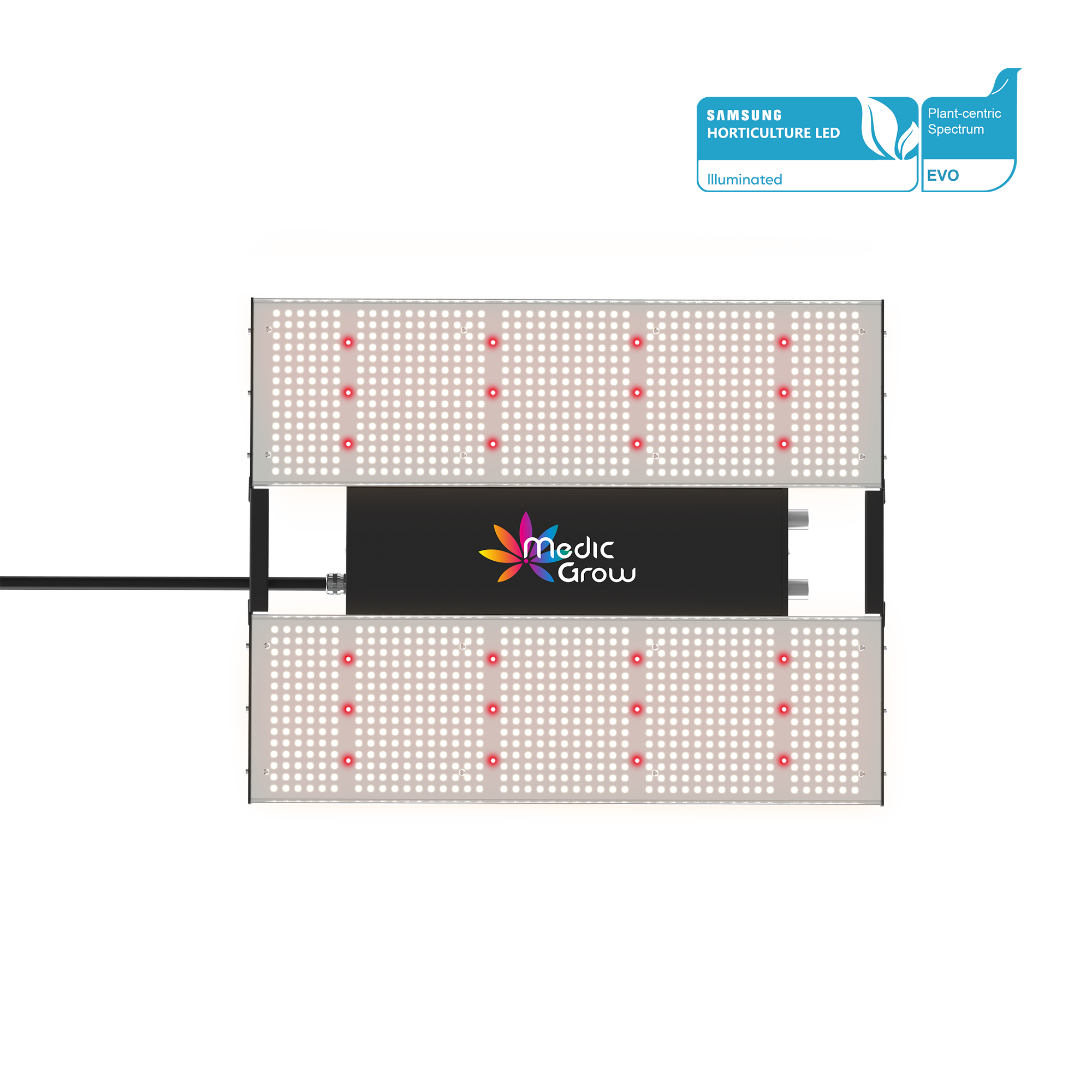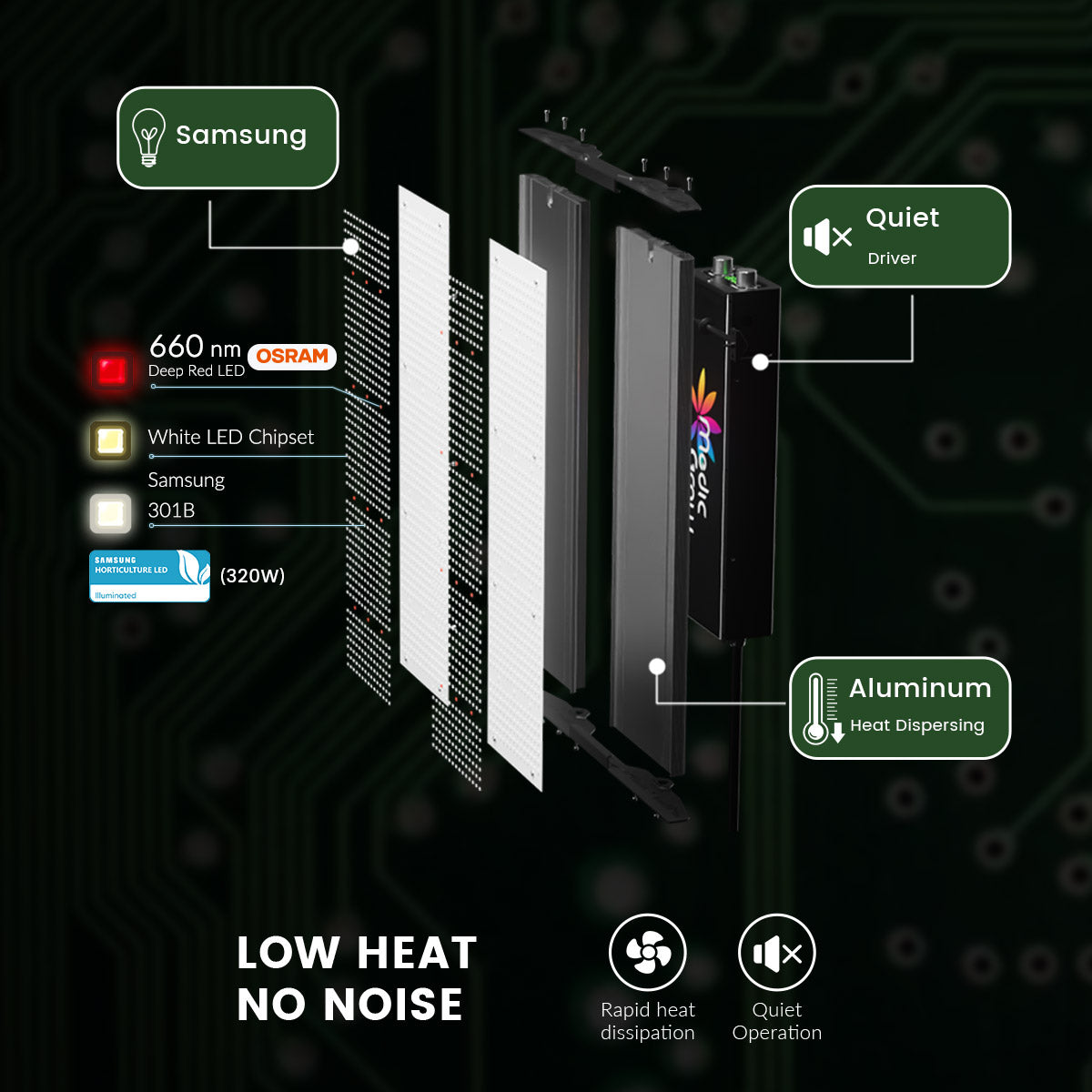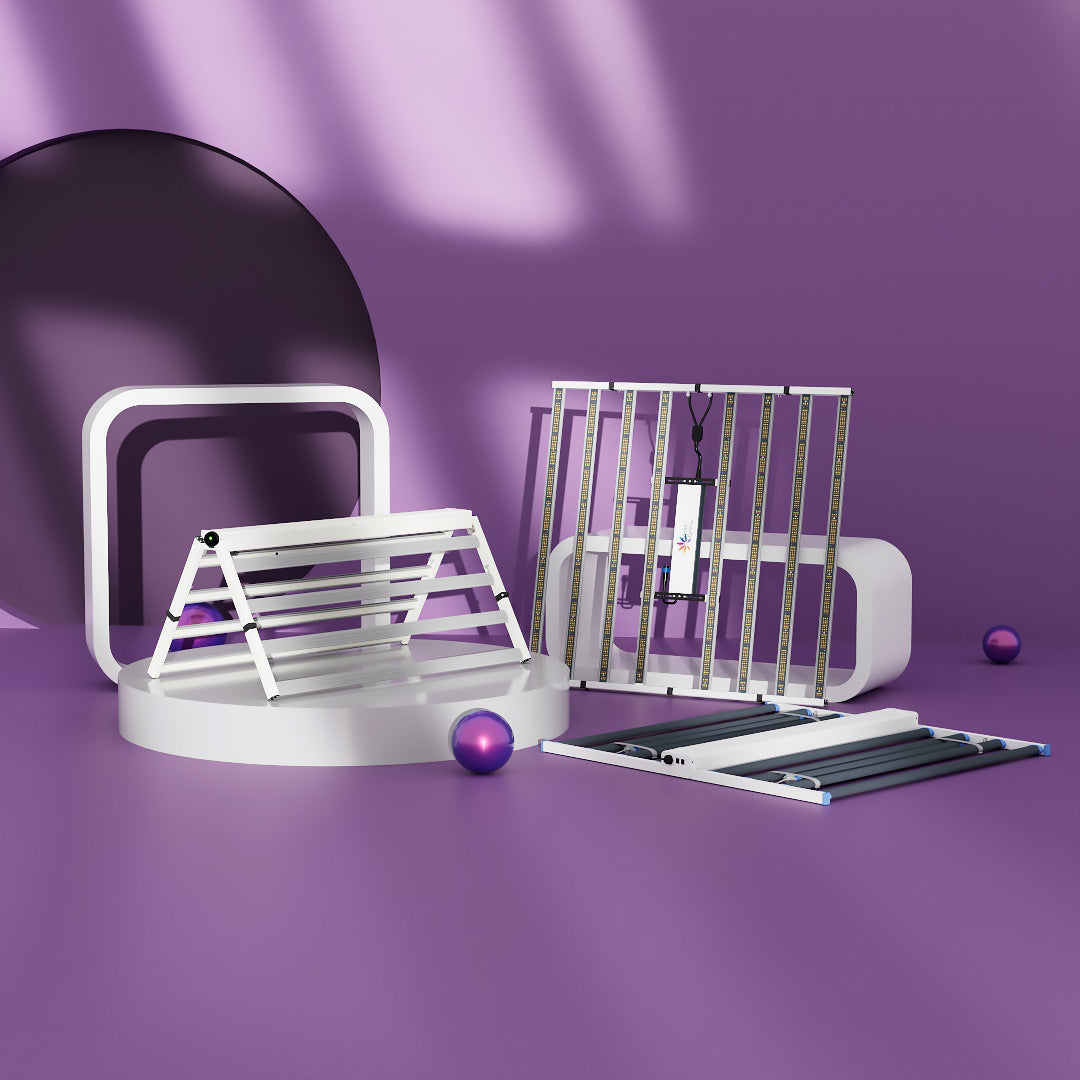
Pesticides for Indoor Plants: Beginner’s Guide
Indoor LED grow lights are indispensable for growing indoor plants. However, pest control is also quite essential to keep the plants healthy and get optimal yield. Indoor plant growers use pesticides to deal with pests in their plants, but this requires proper knowledge and research related to pesticides.
Using the wrong pesticides for indoor plants can make the condition worse and badly affect the yield. Thus, we are here with a complete beginner’s guide to pesticides for indoor plants. We discuss everything in detail to help you keep your indoor plants healthier with full-spectrum grow light.
- Part 1: What are Pesticides?
- Part 2: Types of Pesticides
- Part 3: Organic Pesticides vs Synthetic Pesticides for Indoor Plants
- Part 4: Homemade Pesticide for Indoor Plants
- Part 5: How to Prevent Pests in Indoor Plants
What are Pesticides?
Pesticides are chemicals that are made from a mixture of various substances. Their purpose is to kill, prevent, or mitigate pests in plants, homes, or any other area. But usually, pesticides are more associated with plants.
The word pesticide is a combination of two words: pest and cide. We know what pests are, and the term “side” is a Latin word that means “to kill.”
Pests can destroy crops, their growth, fruits, and everything in plants. They eat leaves, stems, flowers, and buds of the plants and leave almost nothing.
Therefore, it is essential to deal with pests at the right time.
Farmers have been using pesticides for ages to keep their plants healthy and kill pests before they damage the crop. In the early ages, there were natural and organic pesticides, and now we also have synthetic pesticides to deal with pests.
Types of Pesticides
Pesticides can be classified according to the group of pests they are used for. With that being said, the classification can be really diverse, and there can be many types, but there are four well-known types.

Image Source: slidetodoc.com
Insecticides
Insecticides are used for insects, and the special chemicals attack the nervous system of the pests. These are commonly used at homes as well as commercial level farms. They reduce the growth of the insects and help to get rid of them quickly.
Herbicides
Herbicides are used for unwanted plants and vegetation, such as weeds and invasive species. These are also commonly known as weedkillers.
Fungicides
Fungicides are for fungi; they kill the existing fungi and prevent their further growth. They also kill the fungi spores. These can be used in indoor plants to deal with mildew caused by high humidity.
Rodenticides
Rodenticides are for rodents, such as rats and mice. It is a poison, and you might have used or heard about it, such as rat poison, which is also a rodenticide.
Organic Pesticides vs Synthetic Pesticides for Indoor Plants
There is a long debate about whether you should use organic pesticides or synthetic pesticides. Both these types have their own pros and cons, so it is better for us to discuss these pros and cons to make the right decision.

Image Source: neem.world
People usually prefer organic pesticides or natural pesticides for indoor plants. It is because they are living in their house, and they do not want to pollute the air and other areas.
Undoubtedly, pesticides are used for controlling pests, but when you apply them, a massive quantity of the pesticide also reaches some unwanted areas, such as nearby places, air, and water. Therefore, indoor farmers prefer organic pesticides.
But the reality is that both pesticides, natural/organic and synthetic, are toxic, and they are meant to kill pests. However, the effectiveness and the degree of toxicity depend on the pesticide.
Usually, organic pesticides for indoor plants are less harmful to humans, but some organic pesticides are more toxic than synthetic pesticides.
Synthetic pesticides are not all harmful as some of them are specially made for targeted pests, and they do not harm humans. But some are quite harmful and toxic. There are various side effects of toxic pesticides, such as nausea and cancer.
Thus, you cannot say that all organic pesticides are not harmful to humans or that synthetic pesticides are more harmful. It depends on the ingredients of the pesticide.
Other than natural and synthetic pesticides, there is also another terminology, homemade pesticides. These pesticides are made from the commonly used ingredients that we use at home.
Therefore, they are safe, and they can be used without any worries. These pesticides use some ingredients that do not harm humans, but they do their work of controlling, mitigating, and killing pests.
Therefore, people also prefer homemade pesticides for their indoor plants. They can make these pesticides at their home, and they know the ingredients quite well.
Let’s discuss homemade pesticides for indoor plants.
Homemade Pesticide for Indoor Plants
For indoor plants, farmers prefer homemade pesticides as they do not want to fill their homes with harmful chemicals.
There is a wide range of homemade pesticides for indoor plants, and these can be used to deal with various pests and diseases. You can easily make them at your home using some common ingredients.
1) Neem Oil Extract
Neem oil is a famous and traditional insecticide and fungicide. It is the real oil extracted from the neem tree, so it is 100% natural and organic. It is an excellent pesticide for spider mites, mealybugs, whiteflies, and other insects.
If there are already pests on the plants and it is the starting stage, you can use neem oil to get rid of them.
You can make neem oil spray at your home. You need only one tablespoon of neem oil extract and mix it with 1 liter of water. After that, you are ready to spray it on your plants.
2) Pepper Spray
You might have peppers at your home, and you don’t need anything else to make this insecticide for indoor plants. It helps in preventing mites and other insects.
Take 1 tablespoon of pepper and mix it with 1 liter of water. It is better to spray once in 10 days to get rid of insects.

3) Soap and Water
This is the best pesticide for indoor plants, and it will be ready in a minute. It can deal with mites, beetles, aphids, and various other insects.
Although it won’t be organic, you can still try it. But you can also find organic liquid soaps in the market and use them to make organic pesticides.
Add 1-2 tablespoons of liquid soap to one liter of water and make a solution. Now, you can spray it on the plants and their leaves.
4) Essential Oil Spray
It is one of the easiest natural pesticides for indoor plants. Organic essential oils are great for indoor plants, and there is no harm in using them as a pesticide.
You can take any essential oil, such as basil and lavender. Make a mixture with water and then spray it on your plants.
5) Garlic Oil + Soap Spray
Garlic oil spray can be beneficial for repelling insects from plants. The compound in garlic called Allicin helps in getting rid of some insects.
Take 10 cloves of garlic and chop them. Take any mineral oil and add the chopped garlic to it. Now, let this stay for about 24-36 hours. Take out the garlic from the oil and add water and liquid soap.
How to Prevent Pests in Indoor Plants
We have discussed how to deal with pests using pesticides for indoor plants, but prevention is always better than cure. Thus, you might be thinking about how to prevent pests in indoor plants.
If you want to keep your plants away from pests, it is necessary to keep them healthy.
Check Plants Regularly
You need to check all plants regularly. It helps in identifying various issues at the right time. Look for insects, dead leaves, or any other problem. Check the soil pH level as well. If there is any problem with the plant, you can take immediate action. It helps in keeping the plants healthy.
Best Environmental Conditions
The environmental conditions matter a lot. If there is high humidity in the area, there are chances of mold & mildew. It also provides a favorable environment for insects and microorganisms.
Moreover, you also need to take care of the temperature in the area by using grow tent kits. High temperatures can badly affect the yield. While starting your indoor grow room, you need to ensure that the environmental conditions are optimal. There should be fans, AC, humidifier, or whatever is needed.
Water Plants Properly
The watering of plants must be done properly. If you overwater them, there can be various issues, such as waterlogging and fungus. It also invites insects and microorganisms. On the other hand, if you do not give enough water, the plant won’t be able to produce enough food. Thus, you need to give extra attention to watering.
Related Posts:
Beginners Guide to Flushing Plants: Why, When, and How
Learn the Importance of Adding CO2 for Grow Tent
Do Grow Lights Work?Featured Products
Blog Posts
Contact Us with Any Idea!
- Choosing a selection results in a full page refresh.
!
































